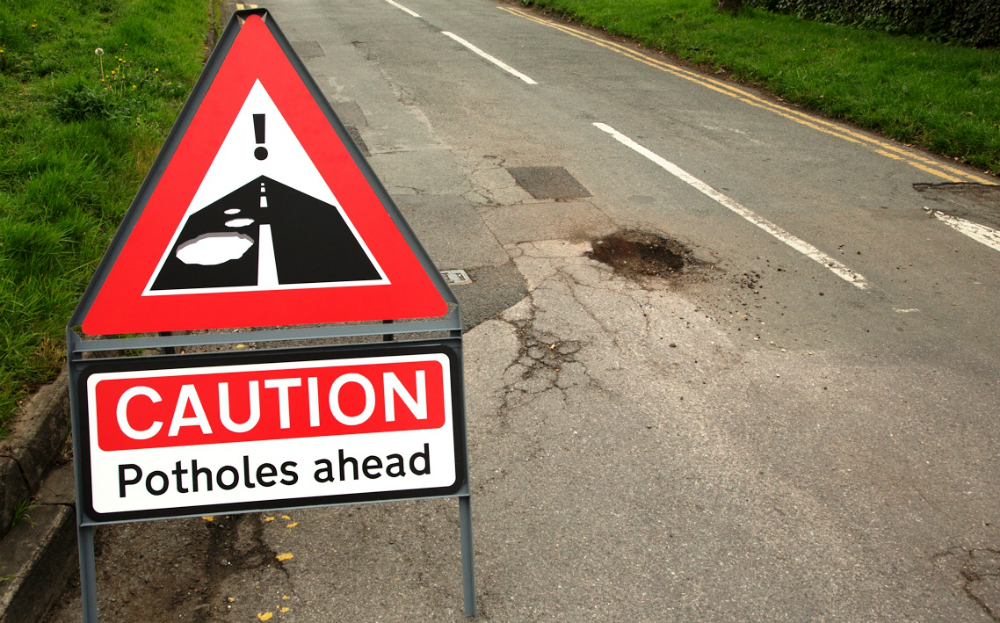Pothole damage doubles in a decade, according to RAC
"Bold thinking required to repair local roads" says organisation

POTHOLE DAMAGE continues to have British drivers shuddering, after the RAC revealed that rescue call outs hit a 10 year high for damage caused by crumbling roads.
According to its figures, 0.9% of all call outs attended by the RAC in the year to June, 2016 were for pothole-related breakdowns. Whereas in 2006, over the same period, just 0.4% of recoveries were related to pothole damage. The difference represents a 125% increase.
It meant that nearly 22,000 drivers were left stranded by potholes. But this is just a snapshot of RAC members. If a similar pattern were to afflict Britain’s 25.8m motorists, it would mean that over 230,000 drivers fell foul of the nation’s broken roads.
Damaged wheels and tyres topped the most common causes of call outs. This was followed by broken springs, shock absorbers and wishbones – all parts of a car’s suspension components, and all vital for maintaining safe roadholding.
David Bizley, RAC chief engineer, said motorists were being left out of pocket by Britain’s poor roads. “With few exceptions, it’s the vehicle owner who picks up the bill for fixing the damage adding up to millions of pounds every year.”
The Association of British Insurers, says drivers with a comprehensive insurance policy are covered for pothole damage. However, Malcolm Tarling, a spokesman for the ABI, cautioned that it may not be worth making a claim.
“If your suspension is damaged, it may be worthwhile. But lodging a claim for a blown tyre, if you have a big excess and your no claims will be affected, should be factored in.” Tarling told Driving that the association has no figures for the collective cost of pothole damage to insurers.
The RAC says the majority of the damage to members’ cars has been when using local roads. Yet in December, 2014 the Department for Transport announced it was setting aside £6bn for improvements to roads – roughly £1bn a year until 2021.
The RAC is calling for bold action to mend local roads. David Bizley said, “Most journeys start or finish on local roads even if the bulk of the mileage is on the strategic road network, or by rail, sea or air. Without local roads that are fit for purpose, the benefits of the Government’s bold investment in national transport infrastructure may never be fully realised.”




